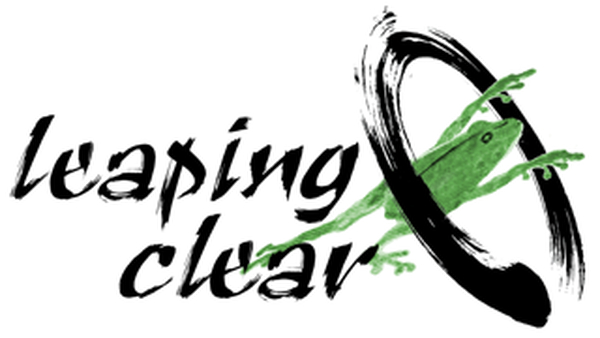Angie Boissevain
Emily Bording, Shakuhachi Flute Accompanist
Motherwork
You pick up a newborn child
and carry him into the world
with his delectable smell
and his small sound
like the word of God,
simple, original noise
of everything.
Count his toes, Wrap
and unwrap him. Listen
for that tiny breeze, his breath,
and from your thick breast give suck
and feel the rush and charge of it
everywhere inside you.
Feed him, hold him, chastise him,
absolve him, pray for him,
and hold him up so he can see.
Take him far so he can see.
Read to him so he can see
the ways of the human heart,
intricate as tangled grass,
can know its paradox of breaking,
and then of mending
at a single word.
And let him go. Over and over,
let him go where he’s taken,
even if he’s locked away, closed
to you, let him be closed.
And if you are a shawled mother
of the disappeared at prison gates
waiting for word of him,
that is your motherwork
whatever the outcome.
If things go well, he will
outlive you by years.
You were a passageway.
Let days of his silence
be passage for you
into realms where you
are a mother for everyone,
and you are everyone’s child.
Five Senses in Spring Solitude
All I can hear is the heart of distant music:
the bass beating like my own inner pumps,
like the rhythms I knew first before knowing,
before light.
All I can see, to pay a mind to,
is a hill like a green breast far across treetops,
bare like a young cheek, adorned with a donkey,
and a white horse.
All I can taste is my own lonely mouth,
housing its colony of teethaskew,
its slippery tongue at ease, but eager to join
music to music.
All I can touch is the sun touching me,
soaking into my skin like fumes,
piercing the windows of my face,
half-closing them.
All I can smell is loneliness: the solid reek of solitude,
the stench of sweat from a mind
forced to split again and wrestle
with itself.
Waterford I
In that part of the city where gray housefronts lean to each other
across narrow streets,
and women gather in crowds, at noontime, with their prams and purses
and string bags
(so many voices rising from front to front with a sealike murmur),
down near the end of the street I am thinking of,
past Thomas’ pub, and the bank, and the fancy hardware,
(it’s a long walk, mind you, from where I was),
is where they keep the Library.
Treasure house, I’d say. Lifeboat. First Prize. Food for the starving.
Shabby old building with a sign telling its hours in the window.
Concrete steps leading up to a thick front door.
Then, as you open it, a drift of the scent
of dust and old ink and dried glue
sifting down the stairs to you.
And then the stairs, a steep flight to the top
to the little room with its six rows of shelves stuffed with novels,
and some lives of the Saints,
and some plays,
and some poetry.
Enough.
Oh, it’s Plenty.
And there’s another room next to that, with some tables,
and heavy wood chairs that groan when you sit in them,
and you can sit in them all afternoon if you like with, say,
some translations of old Celtic poetry,
while it rains past the windows,
and phlegmy old men rattle the Dublin papers,
and students put notes in their notebooks.
All afternoon you can be reading there,
can be lost in the sweet incantation of passions,
in the endless golden rivers of the beginningless Word,
can be caught in an Enchantment.
So that when they come and politely flicker the lights at five,
you stand by the now holy table,
and put on your holy coat,
and pick up the book (whatever it was) and return it
to the Sacred Keeper of Sacred Books at his desk,
and you go, tender and meek, to the pure and selfless door,
and open it with a perfect loving-kindness,
and feel under your hand the great loving-kindness of the door,
and you stand there, the two of you, blessing and blessed, for a moment.
And then you pass through, rejoicing,
down onto the street where the rain
is turning to sleet,
and it’s already dark
Stellar Jays
Arrogant and smart
dressed up in party clothes,
they act like goons
in brilliant blues
and black cockades.
Hustling baby squirrels
with fake hawk screams
they soar into the firs
to rip off newlaid eggs
and newborn wrens.
Awfully hard to like,
but anyway, I do,
they’ve got pizzaz, and,
just like every one I meet,
I tell myself, Annabel,
honey, that’s me.
Angie Boissevain
Angie has been writing poetry and practicing Zen meditation in the Soto lineage of Kobun Chino Roshi since her early 30s. She raised three sons and has three grandchildren. One of the founders of Jikoji Zen Retreat Center where she was director for 12 years, she has traveled widely in the United States, Europe, and Asia, both as a teacher and as a student of Zen. Her everyday life, studies and travel have influenced her poetry and presence. Her award-winning chapbook, Notes from Here, was published in 2010 by Poetry Santa Cruz.
Emily Bording
Playing the shakuhachi is practicing mindful breathing. By returning to my breath, my body, and the rhythm that unites them, music spontaneously arises. I play flute as an accompaniment to poems, stories, ceremonies, and meditations.


